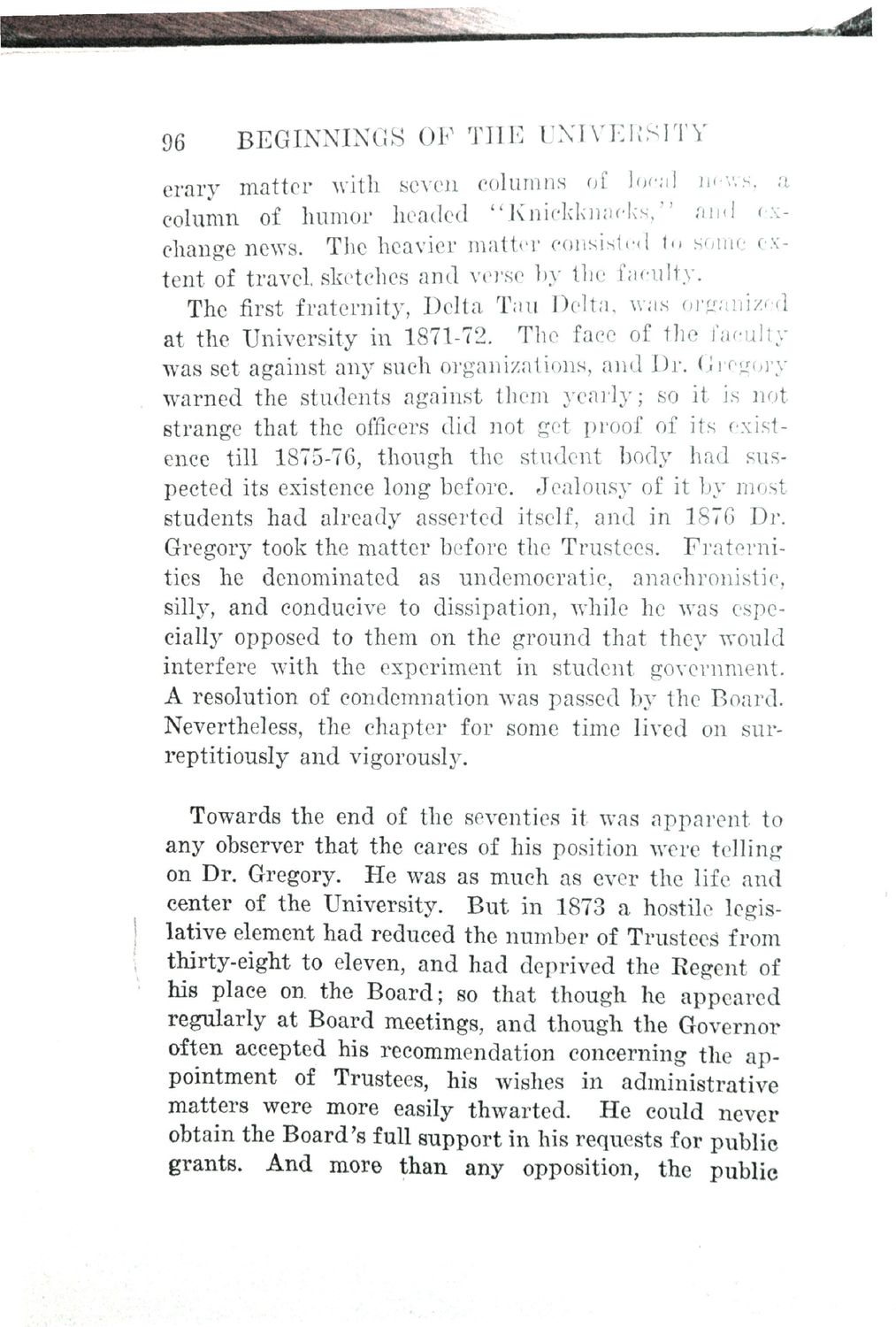| |
| |
Caption: Book - History of the University (Nevins)
This is a reduced-resolution page image for fast online browsing.

EXTRACTED TEXT FROM PAGE:
96 BEGINNINGS OF THE UNIVERSITY erary matter with seven columns of local news, a column of humor headed "Knickknacks," and exchange news. The heavier matter consisted to some extent of travel sketches and verse by the faculty. The first fraternity, Delta Tau Delta, was organized at the University in 1871-72. The face of the faculty was set against any such organizations, and Dr. Gregory |Hwarned the students against them yearly; so it is not strange that the officers did not get proof of its existence till 1875-76, though the student body had suspected its existence long before. Jealousy of it by most students had already asserted itself, and in 1876 Dr. Gregory took the matter before the Trustees. Fraternities he denominated as undemocratic, anachronistic, silly, and conducive to dissipation, while he was especially opposed to them on the ground that they would interfere with the experiment in student government. A resolution of condemnation was passed by the Board. Nevertheless, the chapter for some time lived on surreptitiously and vigorously. Towards the end of the seventies it was apparent to any observer that the cares of his position were telling on Dr. Gregory. He was as much as ever the life and center of the University. But in 1873 a hostile legislative element had reduced the number of Trustees from thirty-eight to eleven, and had deprived the Regent of his place on the Board; so that though he appeared regularly at Board meetings, and though the Governor often accepted his recommendation concerning the appointment of Trustees, his wishes in administrative matters were more easily thwarted.-! He could never obtain the Board's full support in his requests for public grants. And more than any opposition, the public
| |